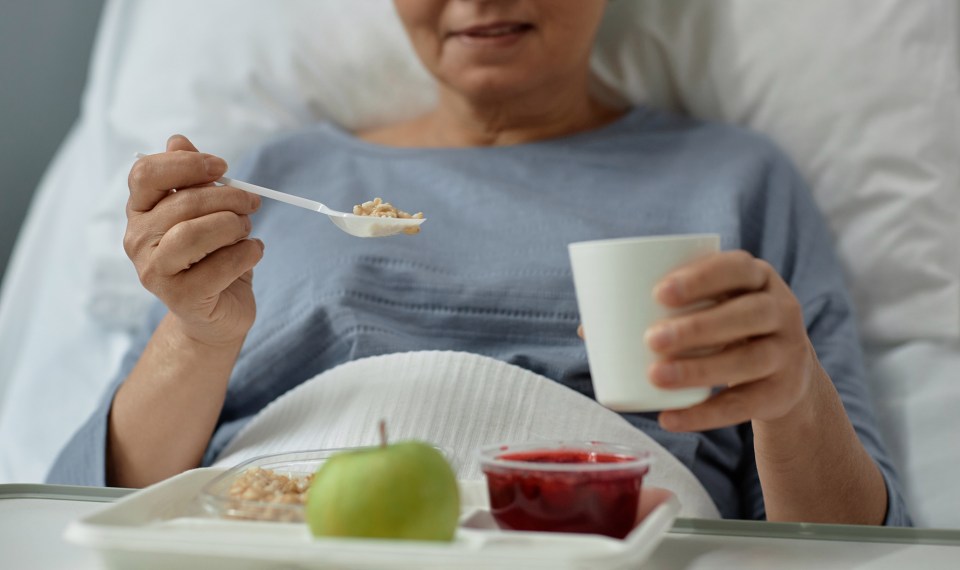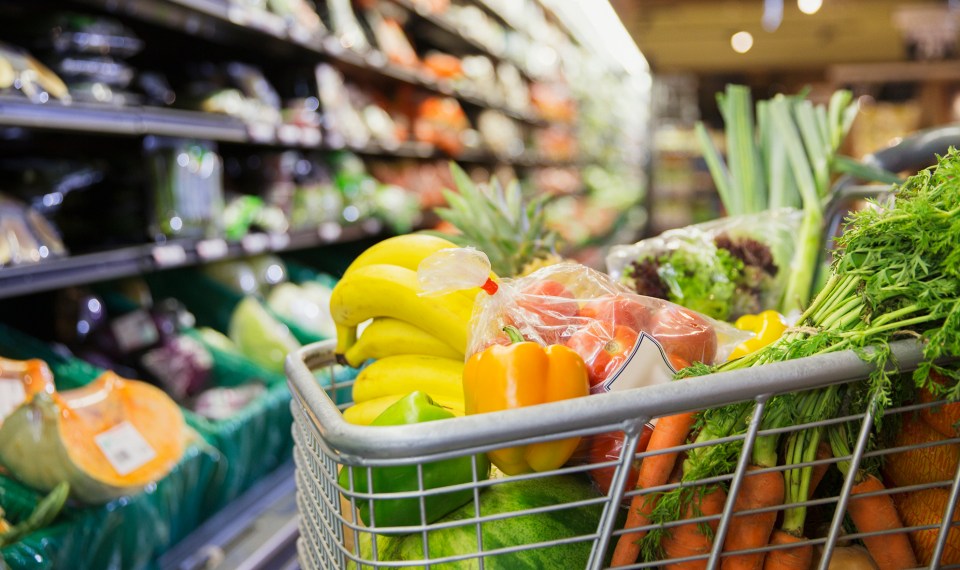Surgery can be a traumatic event for your body, both during and after surgery. Like most serious illnesses or injuries, the right foods and nutrients can help aid in your recovery. In fact, there are some healing foods that could even help accelerate the process.
Alyssa Crouch, a registered dietitian at MidAmerica Rehabilitation Hospital, a part of Encompass Health’s national network of rehabilitation hospitals, said eating the right foods can help reduce certain risks, such as infection, inflammation and loss of muscle mass—all of which can set you back in your recovery.
“Including high protein and high carbohydrate foods prior to surgery can help prepare the body and potentially lead to a swifter recovery,” she said. “After surgery, we also want to make sure you are getting an adequate amount of protein. Protein helps rebuild muscle and tissue after surgery.”
What to Eat in the Weeks Leading Up to Surgery
A week to 10 days prior to your surgery, begin adding more high-quality proteins and complex carbohydrates to your diet. Protein aids in wound healing and can help fight infection, Crouch said. The vitamins, minerals and fiber in complex carbs can help reduce inflammation and improve muscle recovery.
High-quality proteins include:
- Chicken
- Beef
- Fish
- Eggs
- Milk
- Beans and lentils
- Quinoa
- Soy
- Nuts
Crouch recommends incorporating protein into your diet throughout the day or having 20 to 40 grams of protein per meal.
Complex carbohydrates rich in vitamins and minerals include fruits and vegetables as well as whole grains.
In addition to protein and carbohydrates, Crouch said it’s important to incorporate healing foods that support the immune system. “Stress from surgery can weaken the immune system,” she said. “That can increase your risk for infections.”
Arginine is an amino acid that helps the body produce protein and can be found in high-quality proteins. Omega-3s are fatty acids that support overall health. Foods rich in Omega-3s include fish, flaxseed and walnuts.
Sample Meal Plan
Crouch offers this sample pre-surgery meal plan:
- Breakfast: Three eggs scrambled with 1 oz cheese, spinach and diced tomatoes, one slice of whole grain bread with butter and jam with beverage of choice
- Lunch: Cucumber chicken wrap (1/4 cup cooked chicken, shredded carrots, thin sliced cucumbers, mixed salad greens, 2 Tbsp hummus in whole wheat tortilla)with serving of fruit and cottage cheese
- Snack: Protein Shake
- Dinner: 4-6 oz grilled salmon, 1 cup cooked brown rice, 1 cup cooked vegetables with olive oil, served with beverage of choice
- Snack: One to two no-bake energy bites (2/3 cup creamy peanut butter, 1/2 cup chocolate chips, 1 cup old-fashioned oats, 1/2 cup ground flax seeds, 2 Tbsp honey mixed together and divided into 12 balls)
What to Eat 24-Hours Before Surgery
Be mindful of what you eat the 24 hours before your surgery. Eat a light, well-balanced meal about 12 hours before your surgery. Consider having a protein-rich beverage such as chocolate milk, as well. Six hours before, eat about 50 grams or half a cup of carbohydrates. After that, it is best to stay with clear liquids only.
INSIDER TIP: Prepare healthy meals prior to your surgery that can be frozen, so you can have easy, healthy options available when you return home, Crouch recommends.
Healing Foods to Eat After Surgery
When planning your post-surgery meals, be sure to first and foremost follow your doctor’s instructions. Crouch cautions against trying to set weight loss goals or major changes to your diet at this time.
“A lot of times people are ready to start new after surgery; they want to lose weight and start making changes,” she said. “I always encourage them first to focus on recovery. Once you’re recovered, you can focus on weight-loss goals.”
Like pre-surgery, foods high in protein can help you rebuild your muscle and tissues, Crouch said. The following vitamins and minerals can also help aid in your recovery.
- Iron. Found in foods such as spinach, most meats, beans and lentils, iron helps your body produce new blood cells.
- Vitamin C. In addition to boosting your immune system, Vitamin C can also help you absorb iron. It can be found in citrus fruits and berries, as well as peppers.
- Magnesium and zinc. Magnesium is known to reduce swelling, and zinc can help the skin heal from surgical wounds. They can both be found in almonds and cashews, avocados, whole grains, spinach and dark chocolate.
- Fiber-rich foods. Since the pain medications taken after surgery commonly cause constipation, Crouch said to start adding fiber back into your diet. Good sources of fiber include fruits, vegetables and whole grains. “Many of those also have zinc and magnesium, so it all works together,” she said.
Recovering from Surgery or other Illness?
With locations nationwide, we can help you recover after an illness or injury.
Find a LocationShould You Take Supplements?
Many people experience a loss of appetite after a major surgery and don’t get the proper nutrients and healing foods they need to recover. In this instance, Crouch recommends supplements such as nutritional shakes.
“There are always supplement options like the Boost and Ensure drinks,” she said. “Ensure actually has a pre-surgery one that has immune boosting supplements.”
Post-surgery, there are also nutritional shakes designed to support immune health and include a blend of arginine and Omega-3 fatty acids.
Though these drinks are designed to serve as meal replacements, Crouch said getting your nutritional from actual food is still always the best option when possible.
The content of this site is for informational purposes only and should not be taken as professional medical advice. Always seek the advice of your physician or other qualified healthcare provider with any questions you may have regarding any medical conditions or treatments.



